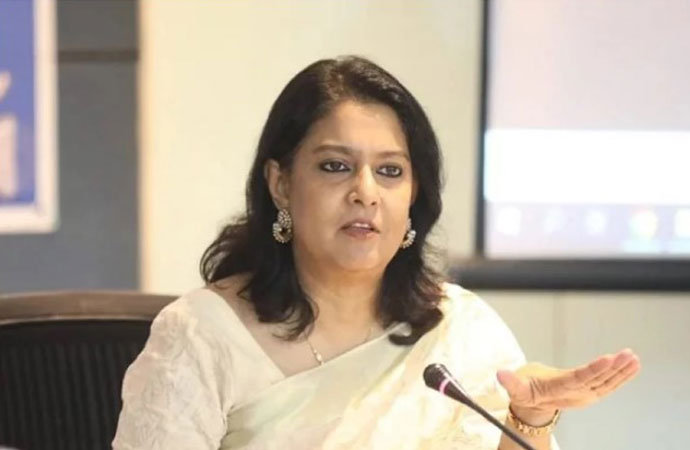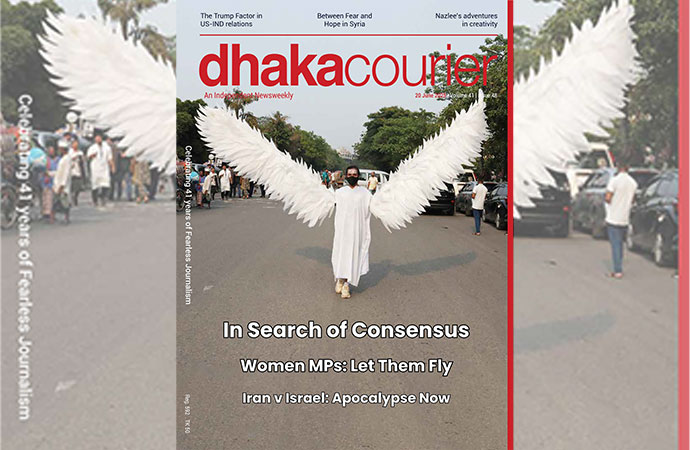World this week

Photo: AP/UNB
The Thai reformist party which won the most votes at last year's election could be dissolved after a court ruled one of its policies unconstitutional. Move Forward is not in government but its campaign promise on changing royal defamation laws violated the constitution, a Thai court found this week. Such lese majeste laws have increasingly been used to stifle political criticism, activists say. It is possible all of the party's leaders could be banned from politics.
Party leader Pita Limjaroenrat, a young, Harvard-educated politician, had been viewed as a threat to Thailand's monarchy by the conservative elite, when he won a majority of votes in the 2023 election. His party campaigned on a progressive agenda - and in particular a pledge to amend the controversial lese majeste law, although much of the party's support was for its other proposed reforms. Although he failed in his bid to be PM, thanks to unelected senators' votes, the 42-year-old was cleared by a court to retain his seat as an MP earlier in January.
A Pakistani special court sentenced former Prime Minister Imran Khan, already in prison for a corruption conviction that he alleges is politically motivated, to 10 years in prison for violating a state secrets law. Khan was accused of leaking a private cable in 2022 from Pakistan's then-ambassador to the United States, Asad Majeed Khan, about a meeting with a senior US State Department official.
Khan argued that he had a duty to make the cable's contents public, claiming that it exposed a US plot to oust him from power; Washington has repeatedly denied Khan's allegations, and Pakistani reports say that the former ambassador told the court that the cable did not make reference to any US conspiracy. In a further sign of how the tables have turned against him, Khan received another separate 14-year sentence on corruption charges this week. Already barred from the country's Feb. 8 elections, Pakistan's powerful military establishment is said to be set on ending his political career.
All 27 EU leaders agreed a €50bn aid package for Ukraine after Hungary had previously blocked the deal. Ukrainian President Volodymyr Zelensky welcomed the new funding, saying it would strengthen the country's economic and financial stability. Ukraine's economic ministry said it expects the first tranche of funds in March. There had been fears Hungary's PM would again block the package as he did at a European summit in December.
Viktor Orban, Russian President Vladimir Putin's closest ally in the EU, had said he wanted to force a rethink of the bloc's policy towards Ukraine and questioned the idea of committing funds for Kyiv for the next four years. The package will help to pay pensions, salaries and other costs over the next four years. It comes as US military aid for Ukraine - the largest provider of military support for Kyiv - is being held up by Congress. Agreeing a new package of aid for Ukraine requires the unanimous support of all 27 EU member states.
Sri Lanka's draconian law to regulate online content came into force, in a move rights groups say is aimed at stifling freedom of speech. The Online Safety Act gives a government commission broad powers to assess and remove "prohibited" content. Authorities said it would help fight cybercrime, but critics say it suppresses dissent ahead of elections. Social media had a key role in protests during an economic crisis in 2022, which ousted the then president.
The act was passed on 24 January by 108-62 votes - sparking protests outside parliament - and came into effect on Thursday after the Speaker endorsed it. The wide-ranging law prohibit "false statements about incidents in Sri Lanka", statements with "an express intention of hurting religious feelings" and the misuse of bots, among other things. A five-member commission appointed by the president will be given powers to assess these statements, to direct their removal, and to impose penalties on the people who made those statements.

























Leave a Comment
Recent Posts
‘Married to Journalism’: Adieu ...
The journalist community of the country united this week in bidding go ...
Reimagining the OST: ‘Utshob’ ...
One of the most successful Bangladeshi films in recent years, 'Uts ...
Harrowing stories of rescue emerge from Texas floods ..
The Resilience of World Trade
Heeding the Lessons of India’s “Emergency”
Sunamganj’s age-old boat market struggles as monsoon ..